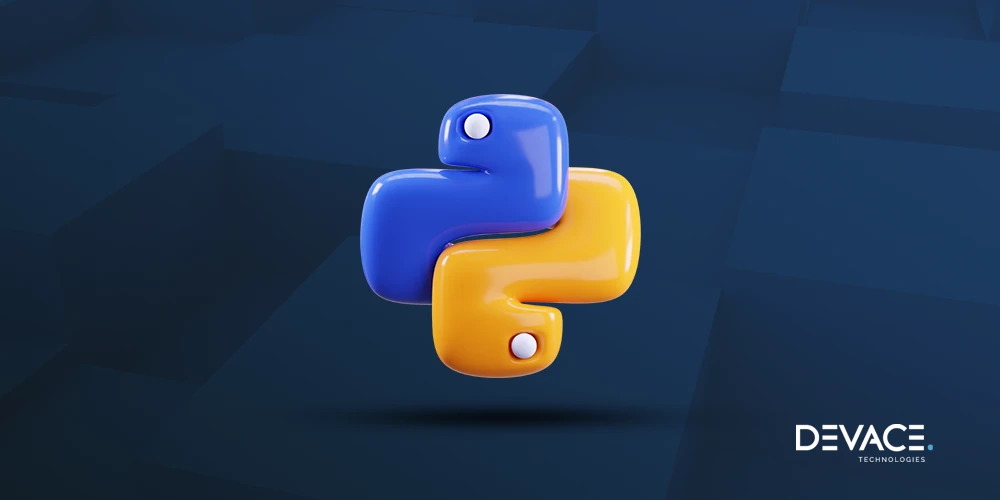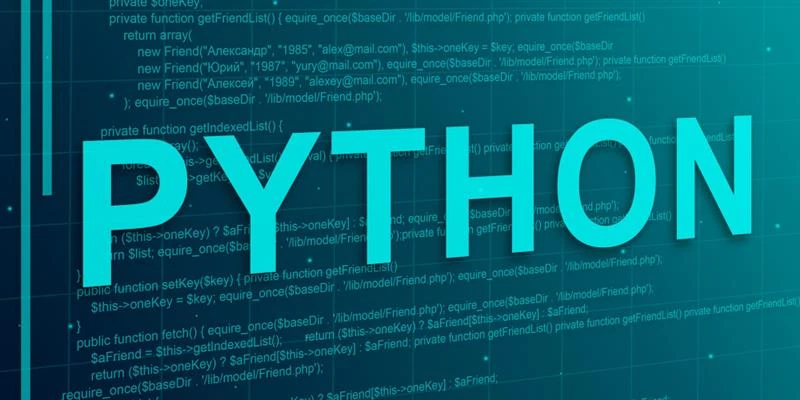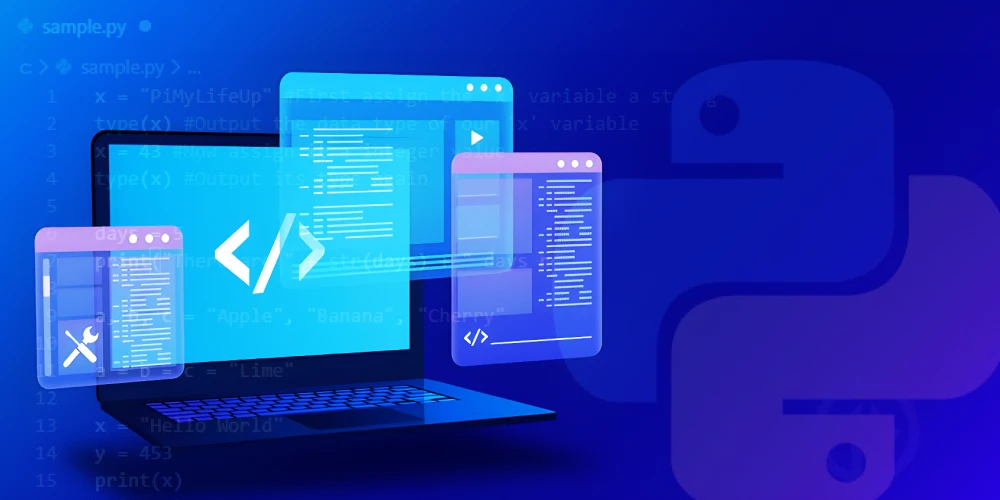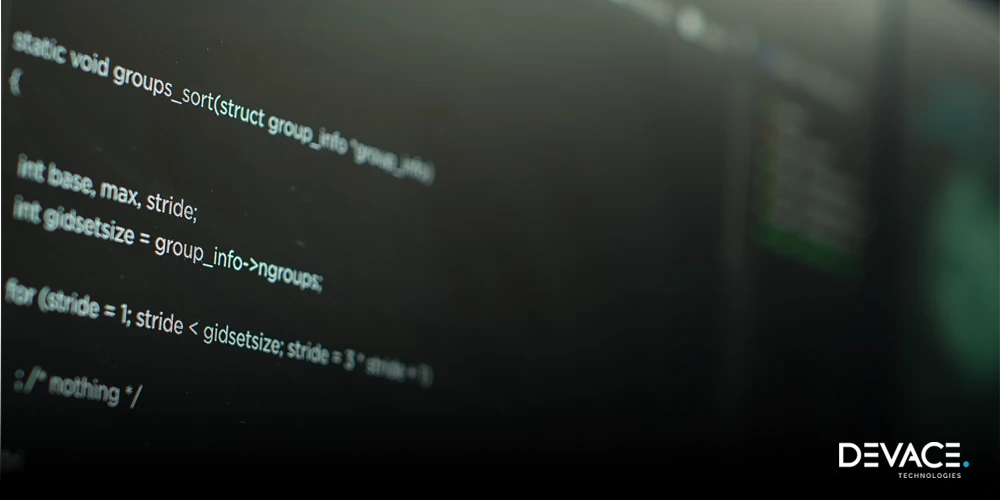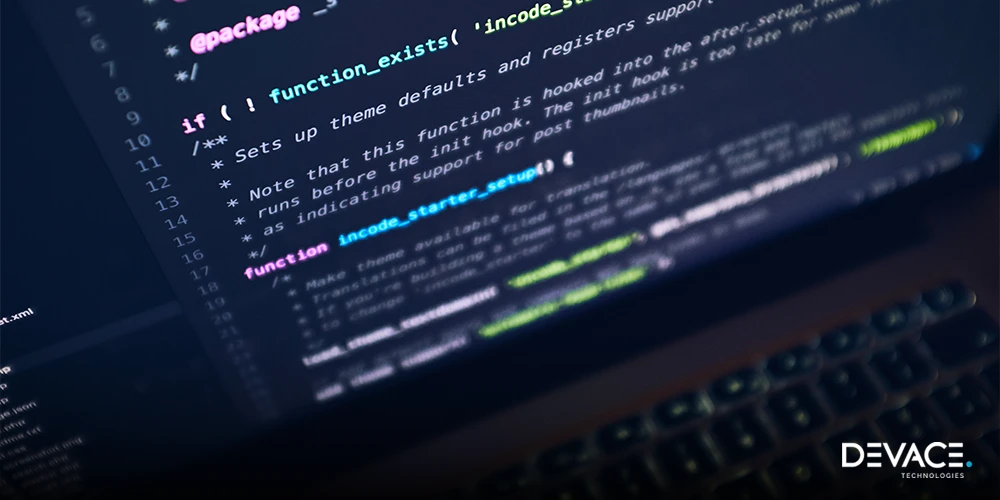Python frameworks with their incredible scalability and versatility have made Python one of the most desired languages among developers. Containing dynamic tools and libraries, the Python web frameworks assist the developers in creating seamless solutions. However, with such a wide range of frameworks each with distinctive features. It can become difficult for developers to select the best Python web framework for their development needs.
Although Django, Flask, Bottle, and Pyramid are some of the top frameworks in this blog, we are going to tell you about 15 Python frameworks and their features.
So that you can make the right selection to elevate your project, giving you an edge over your competitors. You will be amazed to know that many big brands are using Python. 👇
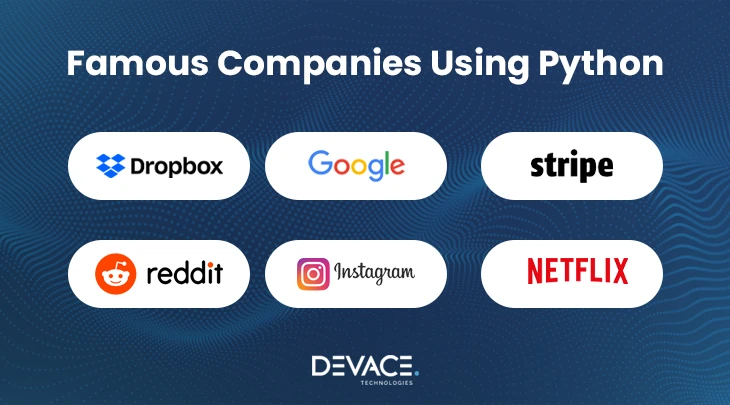
Let’s get started with the introduction of Python web frameworks.
What is a Python Framework?
Python web frameworks are a group of Python modules and packages that help developers in writing codes. It offers a foundation with reusable components, APIs, and utilities that make the development process efficient.
With Python frameworks, Python developers don’t have to worry about low-level details like ports, different protocols, and thread management.
Why use Python frameworks?
Python is among the popular programming languages preferred by developers to build secure and scalable solutions.
Some of the advantages of Python web frameworks are given below.
- Easy implementation & good documentation.
- Efficient operations & open source.
- Code reusability
Python is one of the most famous frameworks around the globe. Most of the people studying the origin of this game-changing framework ask! When did Python become popular? Well, it was released in 1991 and became famous because it used a lot fewer codes to express the concepts in comparison to Java, C++, and C. However, it had a steady trajectory but in 2010, Python began its growth journey which empowered it to compete with major players like Java and JavaScript. So, let us give you some other reasons why it’s famous.
Why is Python So Popular?
Python’s versatility and ease of use have made it one of the most popular frameworks ever. It is also open-source, and its widespread use in data science, machine learning, and the development of AI solutions is due to a rich selection of libraries.
Python offers multiple advantages, yet the developer community is divided over Python vs Java. However, due to the sudden popularity of AI and ML, Python is in the lead. However, Java being old and more stable is still powering many solutions worldwide. Let’s see some of the benefits of Python frameworks that still set it apart.
Benefits Of Python Frameworks
After the popularity of AI or ML the Python frameworks for Machine Learning and Artificial Intelligence have become quite popular. Mainly, because they simplify the development process by allowing the developers to use generic modules. It helps the developers to focus more on specialized components rather than redundant tasks.
Also, the frameworks for Python have made it a well-known and powerful language for web and app development globally. Below are some of the benefits of Python👇
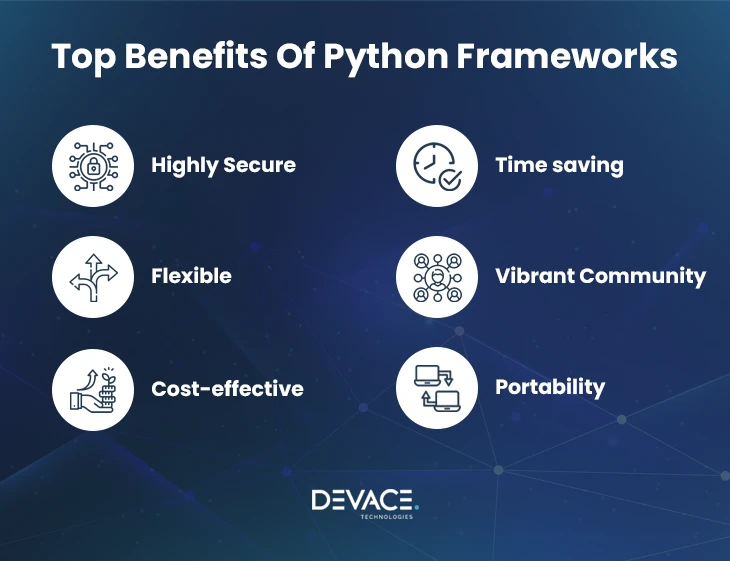
Now the knowledge about Python web development frameworks and their benefits might have cemented in your minds. So, let’s have a look at the types of Python frameworks.
Types Of Python Frameworks
There are different types of Python frameworks, and each has its utility depending upon the project’s needs.
For instance, the Python full stack framework will have a different use as compared to the Python backend framework. Let’s look into these types in detail!
Microframework
The microframework is a lightweight minimalistic framework offering elements that are necessary to develop an app. They lack features and functionalities such as:
- Web template engine
- Authorization
- Input sanitation
- Authentication capabilities
- Database extraction layer
It’s a superb choice for small projects and for developers who want more control over their code.
Asynchronous Frameworks
It is the most recent addition to Python web frameworks. It allows the management of many concurrent connections.
Full Stack Frameworks
The full-stack framework fulfills all development-related needs. Also, known as an enterprise framework, it has built-in libraries. These frameworks help with the development of front-end interfaces and back-end development.
The most popular full-stack Python frameworks are Django and Turbogears.
Sometimes, the famous Python frameworks are confused with libraries but there is a huge difference between them.
As we promised to make you master it, with the help of our Python developers we are jotting down this difference below.
Are you looking to build a scalable & seamless web or mobile app with Python?
Python Library vs Python Framework
Although the Python web frameworks and libraries have some differences when it comes to providing operational functionalities to the developers.
| Python Library | Python Framework |
|---|---|
| Collection of methods & functions utilized to perform specific tasks. | It has the basic flow the rest is developed by the user. |
| Less complex. | More complex. |
| More flexible in terms of usage & integration. | Offer a structured approach speeding up the development process but limiting flexibility. |
| Libraries give specific functionalities. | Offer a sketch where you can fill in the details. |
| Narrow in scope with a focus on specific tasks. | They are broad in comparison providing complete solutions for specific domains. |
Now you know what Python framework is, their types, and the difference between Python framework & library. Hence, it’s time to review the list of top Python frameworks. So, that you have no difficulty when you hire developers.
Top 15 Python Frameworks In 2025
Different types of Python web frameworks are accessible to Python developers. Although, choosing the best one among them can be complex yet crucial.
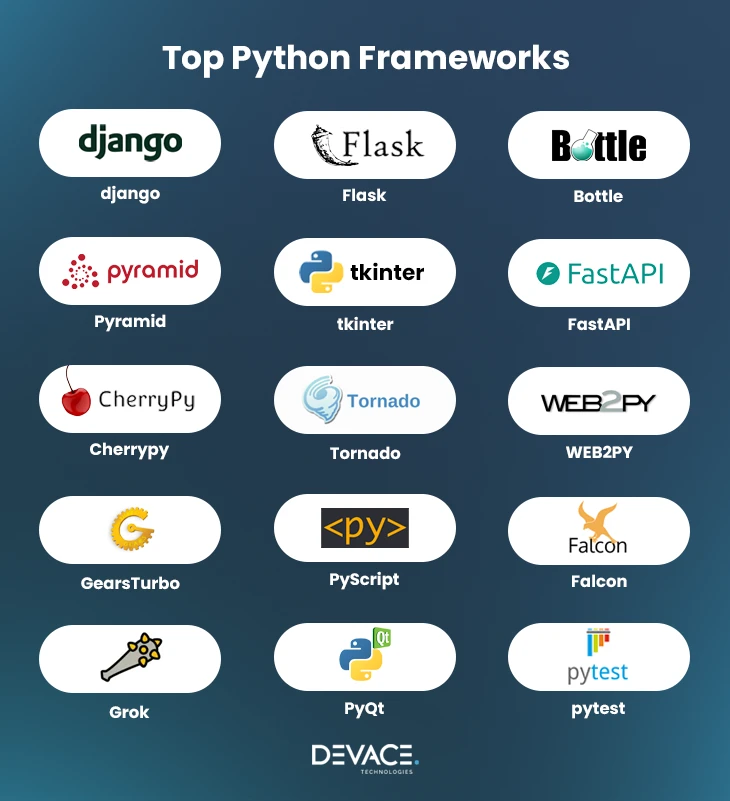
So, we have made a Python framework list to help you and the first one is Django.
Django
Django is an open-source full-stack Python framework. It allows the efficient development of high-quality complicated web apps. That’s why companies worldwide prefer to hire Django developers. It is a Python REST API framework (Django REST framework is a way of developing REST API using Django).
Features of Django
Some of the noted features of Django are given below:
- Highly secure framework.
- Built-in admin panel.
- Robust authentication support.
- Gives functionality of database schema migration.
Flask
Flask is mostly considered among the Python backend frameworks. It is lightweight and more flexible because of the modern design. Python developers highly rely on this framework for developing reliable apps.
Features of Flask
It is also a Python API framework like Django and below are some of its top features:
- Best framework for unit testing.
- Easy to use & great documentation.
- Good support for Jinja templating.
- Aids in handling cookies & user authentication.
Bottle
Bottle is highly feasible for the development of light web apps. It is a microframework without any inclusion of external dependencies aside from the Python standard library.
Features of Bottle
Some of the features of Bottle are given below:
- Easy to use and learn.
- The template system is built in.
- Best for building APIs & small web apps.
- Less memory usage.
- Good routing support.
Pyramid
Pyramid among Python web frameworks is flexible and excellent for building small and large applications. It is famous for its adaptability, simple testing, and debugging capabilities.
Features of Pyramid
Let’s see some of its features below:
- Lightweight & powerful URL dispatch.
- Detailed documentation.
- Active community support.
- Robust URL dispatch.
- Support for Mako template language.
- Simple testing & debugging.
Tkinter
Tkinter is counted among the famous Python GUI libraries known for its simplicity and ease of use. It is highly recommended for beginners and developers willing to develop moderately complex GUI applications in Python.
It offers a set of tools for creating widgets such as labels, text, buttons, boxes, and menus.
Features of Tkinter
Below are some of its features.
- Lightweight
- Built-in support for colors and images.
- Cross-platform compatibility.
- Offers immediate feedback after execution.
FastAPI
Another Python API framework is Fast API which supports asynchronous code and effortless integration with other libraries & tools.
Features of FastAPI
Its features are given below:
- Feasible for rapid development.
- Easy to manage dependencies.
- Built-in support for WebSocket APIs.
- Supports secure authentication mechanisms.
CherryPy
It is an open-source and lightweight web app development framework that offers an easy-to-use interface for mapping URLs. CherryPy has built-in tools like caching, sessions, a flexible configuration system, etc.
Features of CherryPy
It is a Python backend framework and some of its basic features are given below:
- Mature & flexible framework.
- Extensible plug-in system.
- Handles HTTP requests.
- Powerful configuration system.
Tornado
Tornado is an asynchronous Python web development framework and networking library for the development of web apps. It’s an open-source framework, that is used by web app developers because of real-time analytics and other concurrency applications.
Features of Tornado
Some other features that make Tornado the famous framework of Python are given below:
- Ability to handle thousands of connections.
- Robust built-in user authentication.
- High-quality results.
- 3rd party authentication options.
Web2Py
Web2Py Python framework supports multiple platforms like Linux, Windows, & Mac. It helps in the maintenance and testing of web apps containing code editor, debugger, and deployment instrument.
Features of Web2Py
Some of its features are given below:
- MVC architecture support.
- Supports localization & internalization.
- Powerful authentication mechanisms.
- Easy deployment & maintenance.
- Contains web-based IDE.
- Automatic form validation & generation.
TurboGears
It is another Python framework for full-stack web app development enabling the developers to build apps with minimal configuration. TurboGears is best for flexibility and rapid development.
Features of TurboGears
Here are some of its features to further clarify its utility:
- Support for multiple databases.
- Flexible templating (support for engines like Mako etc.
- Built-in tools for authentication.
- Simple scaling and deployment options.
- Extensible through plugins & middleware.
- Good for creating web apps.
PyScript
PyScript is listed among the Python front-end frameworks. It helps in the creation of Python programs using an HTML interface in the browser.
Features of PyScript
The best features of the PyScript framework are given below:
- Lightweight scripting language.
- Seamless integration with Python libraries.
- Rapid prototyping & automation.
- Built for efficient scripting tasks.
Falcon
Falcon is a lightweight Python framework developed for building fast and lightweight APIs. It is a minimalistic high-performance framework with built-in support for HTTP caching.
Features of Falcon
Some features of this framework are below:
- Supports asynchronous programming.
- Minimalistic design philosophy.
- Modular architecture allows to add or subtract features.
Approaching the end of the blog another framework that has made it the list of Python web frameworks is Grok.
Grok
Grok is a Python web framework based on Zope ToolKit (ZPK). It is an open-source framework that accelerates app development by offering developers a variety of networks and standalone libraries.
Features of Grok
Some of the top features of Grok are given below:
- Powerful base for adaptable web app development.
- Strong object storage database.
- Built-in data security.
- Best elements to create custom web apps.
PyQt
PyQt is one of the most well-known sets of Python bindings for the Qt cross-platform app framework. It perfectly combines Python simplicity with a powerful Qt application framework built in C++.
Features of PyQt
Some of the PyQt features are given below:
- Easy integration with other frameworks and libraries.
- Access to a large number of functionalities.
- Supports cross-platform compatibility.
Last but not least in the list of Python web frameworks is Pytest.
PyTest
PyTest is a popular testing framework that is easy to use. It helps in writing elegant tests for small as well as complex Python codebases.
Features of PyTest
Like other frameworks, its features are mentioned below:
- Easy to use and learn.
- Contains 800+ plugins.
- Detailed error information.
- Sets a workflow to develop unit tests.
Hire Top Notch Python Developers from Devace Anywhere and Anytime.
Python & AI Development
If you are looking for Python machine learning frameworks then PyTorch and TensorFlow are popular among Python developers. Some other libraries and frameworks are also given below.
Final Thoughts
Python frameworks provide a variety of features that help in the development of seamless and scalable solutions. However, you must choose the framework as per the development needs of your project.
So, if you are thinking of including Python web frameworks or looking to build your project from scratch then first jot down your needs. Then choose the one that matches your project requirements. You can also consult companies offering Python development services.
Book Your Free Consultation with Our Python Developers
If you are still confused, then let our Python experts choose the best Python web framework as per your project needs. At Devace Technologies, we train our developers to work in any time zone providing continuous support for your solution.
Frequently Asked Question
Which Python framework has the best performance?
The performance is based on your project needs. However, Tornado and FastAPI are known for their powerful performance. Mainly because of their effective management and concurrent operations. Django, due to its versatility is also one of the top choices of developers worldwide.
Which Python framework is widely used?
The most used Python framework is Django with unrivaled popularity. Its battery-included philosophy ensures efficient development.
Which framework is better for Python?
Selecting the best Python framework will depend upon specific project needs and developer preferences. However, Django and Flask are excellent choices and one of the top Python web development frameworks. Django with its comprehensive features is the best for powerful and scalable web app development. Flask on the other hand is flexible and lightweight and excellent for small projects.
Which one is the easiest Python framework?
If you are looking for the easiest Python framework then Bottle is a perfect choice, especially in the case of web development. It’s because it has no dependencies except the Python library and implements everything in a single source file.
Is Python worth learning?
Of course, Python is versatile and user-friendly with simple syntax and readability making it accessible to new programmers. Another thing that makes Python a brilliant choice is its utilization in Artificial Intelligence (AI) solution development and its vibrant community.
Which Python web framework is like Flask?
The Bottle is somewhat like a Flask in terms of flexibility and being lightweight. It is also a micro-framework like Flask and is best for small-scale app development. These frameworks are also alike because of their minimalistic approach and ease of use.
